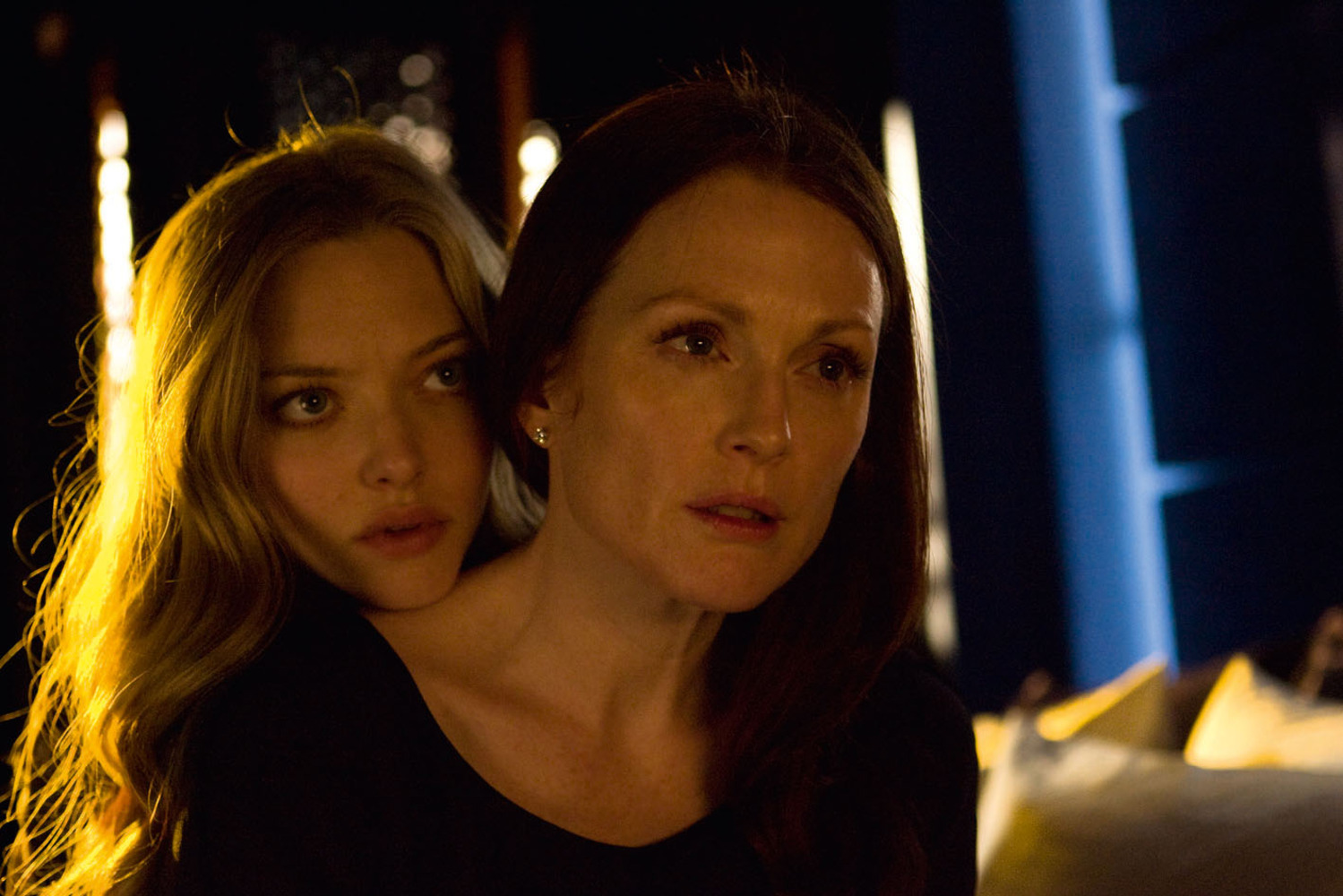With this month’s NYFF screening of Maps to the Stars and the upcoming gay rights drama Freeheld, Julianne Moore seems to be revisiting her fondness for queer-themed roles—so I break down the actress’ most prolific LGBTQ characters and collaborations, for some perspective.
If one were to look at the trajectory of Julianne Moore’s filmography, a certain trend would soon emerge: the actress is a serious favorite among queer filmmakers, and the feeling seems to be quite mutual. The 53-year-old’s illustrious career boasts a myriad of collaborations with acclaimed LGBTQ directors, including Gus Van Sant (Psycho), Todd Haynes (Safe, Far From Heaven), Tom Kalin (Saving Grace), and Tom Ford (A Single Man)—several of which have also landed the actress her most notable roles as a gay character, among them being Kimberly Peirce’s Carrie, Stephen Daldry’s The Hours and Lisa Cholodenko’s The Kids Are All Right.
From these collection of films, Moore received 2 Academy Award and 4 Golden Globe nominations, and it’s very likely that this year will see yet another addition to the list by way of Richard Glatzer and Wash Westmoreland’s Still Alice, an accomplished offering that was recently entered in this year’s Oscar race. Moore stars as the title character, and her harrowing portrayal of a woman suffering from Alzheimer’s is layered with an honest and stunning devastation that certainly stands out as one of the actress’ best performances to date. So much so, in fact, that it’s almost impossible to imagine her not getting a nomination, especially since this role seems to be the most-likely-to-succeed from among the other possible contenders in the Best Actress category. And this time around, it would be not one but two queer filmmakers—professional and romantic partners Glatzer and Westmoreland—whose collaboration with the acting veteran will pave the way for the big prize. If such is the case, then Moore will become the sixth example of a queer filmmaker directing someone to a Best Actress Oscar since 2000; as Meryl Streep, Kate Winslet, Charlize Theron, Hilary Swank and Nicole Kidman have all won Oscars for their roles in films helmed by queer filmmakers within the past 15 years (3 of which were directed by women).
Known for taking on progressive and at times provocative parts, Moore’s momentum is far from slowing down, and her particular affinity for sexually fluid roles continue to manifest through various ongoing projects. In addition to Still Alice, Moore also currently stars in David Cronenberg’s Maps to the Stars; a cynical Hollywood satire that premiered at Cannes and screened at this month’s New York Film Festival. Moore plays Havana Segrand, a descendent of Hollywood royalty who, despite being the daughter of classic actress Clarice Taggart, is now an aging, anxious C-lister whose mental stability is often derailed by the ghostly visions of her mother who died decades earlier in a fire. Although Havana is not a gay character per se, she nonetheless exerts a degree of sexual curiosity and exploration, as evidenced by a rather graphic threesome love scene involving two females that leaves little to the imagination.

From her towering performance as a washed-up actress to a role that treads territory more reminiscent of The Kids Are All Right, Moore is also starring alongside Ellen Page in the upcoming gay rights indie Freeheld, based on the 2007 Oscar winning documentary short of the same name. The Peter Sollett-helmed drama chronicles the real-life case of New Jersey police detective Laurel Hester (Moore) and Stacie Ardeen (Page), a lesbian couple who fought to amend the Domestic Partnership Act after the former became terminally ill and government officials denied Ardeen the pension benefits of her Hester. Produced by Kelly Bush (PR rep known for representing many of Hollywood’s LGBTQ talent), the film is also set to star Steve Carell as the Garden State Equality activist Steve Goldstein who helps fight for the same-sex couple’s rights.
It comes as little surprise that aside from their obvious common denominator, Maps to the Stars, Freeheld, and even Still Alice share virtually no similarity, yet that is precisely the point. I reference these films simply as a means of illustrating Moore’s inclination for either collaborating with queer filmmakers, or playing characters that harness a level of autonomous sexual intrigue. In that sense, Moore can even be viewed as the female analog to Neil Patrick Harris, since both actors seem to continually embrace roles that embody a sexuality different from their own. Unlike many of her contemporaries, Moore often punctuates her performances with thoughtful social commentary—and it is this bold, impressive, and unexpected consistency that allows her work to be regarded with such a unique appreciation and respect. In fact, I would be hard-pressed to find another relevant mainstream actress whose film resume is as prolific and diverse, yet still emblematic of a strong queer sensibility.
Twitter: @DemionFilm
Facebook: facebook.com/demionfilm

